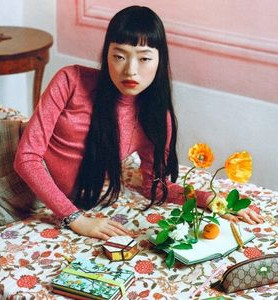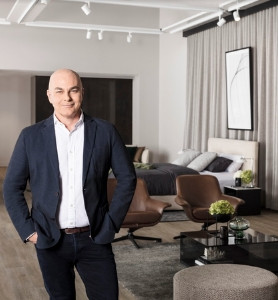These are the designers to know from Lexus’ annual design awards
As Lexus continues to exert its status as one of—if not the most—design-driven marques on the market, their most recently awarded emerging designers assure us that the future of local design is human-centred.
Emblematic of the brand’s design-driven virtues, the Lexus Design Awards continue to stand as a beacon for emerging design talent, showcasing the next generation of creative thinkers who align with the brand’s core principles: Anticipate, Innovate, and Captivate. Held this week/last month at the Simon James showroom in Mount Eden, the ceremony brought together some of New Zealand's most curious design students from Auckland University of Technology and The University of Auckland, all responding to a brief emphasising sustainable design solutions with real-world impact. The event also marked a significant moment for Lexus, with Moe Durand from Lexus International attending for the first time, offering a global perspective on the local talent.
This year’s awards were judged by a panel of respected figures in design, including Lexus Ambassadors Simon James, Scott Bridges, and Tim Rundle from Resident, who supported the students not only through mentorship but also by lending their expertise as judges. With entries focusing on both technological innovation and human-centric solutions, the awards offer a vital platform for the designers of tomorrow to influence a better, more sustainable world.
AUCKLAND UNIVERSITY OF TECHNOLOGY WINNER
MYOLINK BY DANIEL BRINK
An idea charged by his own experience in the construction industry, pole position’s Daniel Brink set out to create a wearable sensor using electromyography to help prevent lumbar muscle strain—one that responded to the uniquely ‘macho’ challenges of the industry. The design was commended as an alternative to the exoskeleton—which judge Simon James described as one step away from robots themselves—and is a subtle device that can be worn under work shirts. Throughout the research phase of his design, the student found that a staggering 54% of construction workers struggled with lower back injuries. His solution, founded on principles and treatments of physiotherapy, could genuinely change the industry for the better.
RUNNER UP
SUSTAINABLE SERVICE WARE BY DEANNA GRIFFIN
As globe-trotters ourselves, the Remix team was seriously impressed with Deanna Griffin’s proposed solution to both the immense waste stemming from in-flight dinner service, alongside the inefficiencies for flight attendants, caterers and passengers themselves. Her modular tray system comes in the form of a chic assortment of containers that are designed to nestle within each other and simplify the workflow of attendants on post-service cleanup.
UNIVERSITY OF AUCKLAND WINNER
BABI BY PIA SUTHERLAND
Pia Sutherland’s design, baBI, is a visionary response to New Zealand's environmental monitoring challenges, aiming to revolutionise conservation efforts through a nationwide network of modular, remote sensors. Drawing from the urgent need to understand and mitigate ecological crises such as Kauri dieback and pest proliferation, Sutherland's ‘core’ system allows for flexible sensor configurations that can adapt to the specific needs of each region. The design cleverly integrates power management, data transmission, and diverse sensor types—from weather and soil sensors to cameras and sound detectors—into a single, robust unit. With an open-source data flow and AI-driven analytics, baBI promises to empower researchers, conservationists, and even the public with real-time, actionable insights to monitor and protect the nation’s unique ecosystems. The prototype’s focus on durability, ease of installation, and integration with emerging technologies underscores a commitment to both scalability and practical impact, providing a foundational tool for the next generation of ecological conservation.
RUNNER UP
WORN AGAIN BY GISELLE CONWAY
Giselle Conway’s concept, Worn Again, addresses New Zealand's growing textile waste crisis by offering a hands-on, community-driven solution to circular textile recycling. The workshop-based initiative empowers participants to transform their old, unwearable garments into valuable resources by learning garment-to-garment recycling methods: participants bring in their discarded clothes, which are shredded and spun into yarn, then used to create handmade items such as rugs and coasters through guided tufting sessions. Here, the vision is not just about reducing landfill waste; it’s about creating a culture where discarded textiles are given a second life, contributing to a more sustainable future.
Alongside an impressive accolade to add to their resume, winners of the Lexus Design Awards received $4000 towards their studies, while runners-up received $2000. On the night, the four designers also received news that their projects would be showcased at next year’s Auckland Design Week—one of the foremost industry events in the nation.






